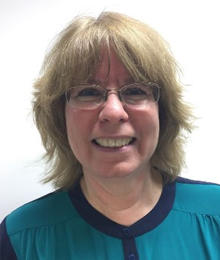An interview with Dr Jessica Boname
December 2019
Dr Jessica Boname is Head of Antimicrobial Resistance at the Medical Research Council, UK Research and Innovation and a member of the Microbiology Society. In this interview she tells us more about what inspired her to become a microbiologist and how she believes research into novel antimicrobial strategies can provide new tools to ensure that antibiotics are used appropriately and supported policy to ensure fair and equitable access to antibiotics across the globe.

What inspired you to become a microbiologist?
Microbiology is a fascinating subject which captured my imagination from the age of 7 when I was given a microscope for my birthday. It was quite exciting to see the wealth of organisms that could be found in a drop of pond water. My fascination with the microbial world continues to the present day; I studied microbiology at university, viral pathogenesis and immune evasion as a research scientist, and I am currently the Head of Antimicrobial Resistance at the Medical Research Council, one of the seven government councils that make up UK Research and Innovation.
Why does microbiology matter?
Microbes have a very long history, starting with the origin of life on this planet. The co-evolution of microbes with all other species can be used to our advantage. For example, viruses are obligate intracellular parasites that require host functions to survive. As microbiologists, we can study how they function, how they interact with the host to cause disease or promote health, or indeed we can use their proteins as tools to better understand host cellular processes. This coevolution has also led to unintended consequences such as antimicrobial resistance (AMR) as microbes evolve to no longer be responsive to the drugs used to treat disease.
Tell us more about the challenges we face with antimicrobial resistance and how we can reduce our reliance on antibiotics?
Modern medicine was revolutionised by the discovery and development antibiotics in the UK. However, treating common infections, undergoing routine surgery and having cancer therapy are all at risk as antibiotics lose their effectiveness. UK research will play an important role over the next 20 years as we work to contain and control AMR.
We can reduce our reliance on antibiotics by developing and testing new vaccines, by reducing transmission of infection, and by developing and testing new antibiotics and alternative therapies. Research can provide new tools to ensure that antibiotics are used appropriately, and support policy to ensure fair and equitable access to antibiotics across the globe. As microbes are ubiquitous and don’t respect sectoral, economic or geographic boundaries it is important for us to consider the microbial community (microbiota) in a global context in humans, animals and the environment.
Why did you become a member of the Microbiology Society?
The Microbiology Society plays a key role in the communication and dissemination of knowledge through their conferences and workshops, and by convening the UK research community to address important topics such as the microbiome and AMR. The outreach activity of the Society provides a wonderful resource to members to allow them to share their understanding of the microbial world and why it’s important, and thereby attract the next generation of microbiologists.


